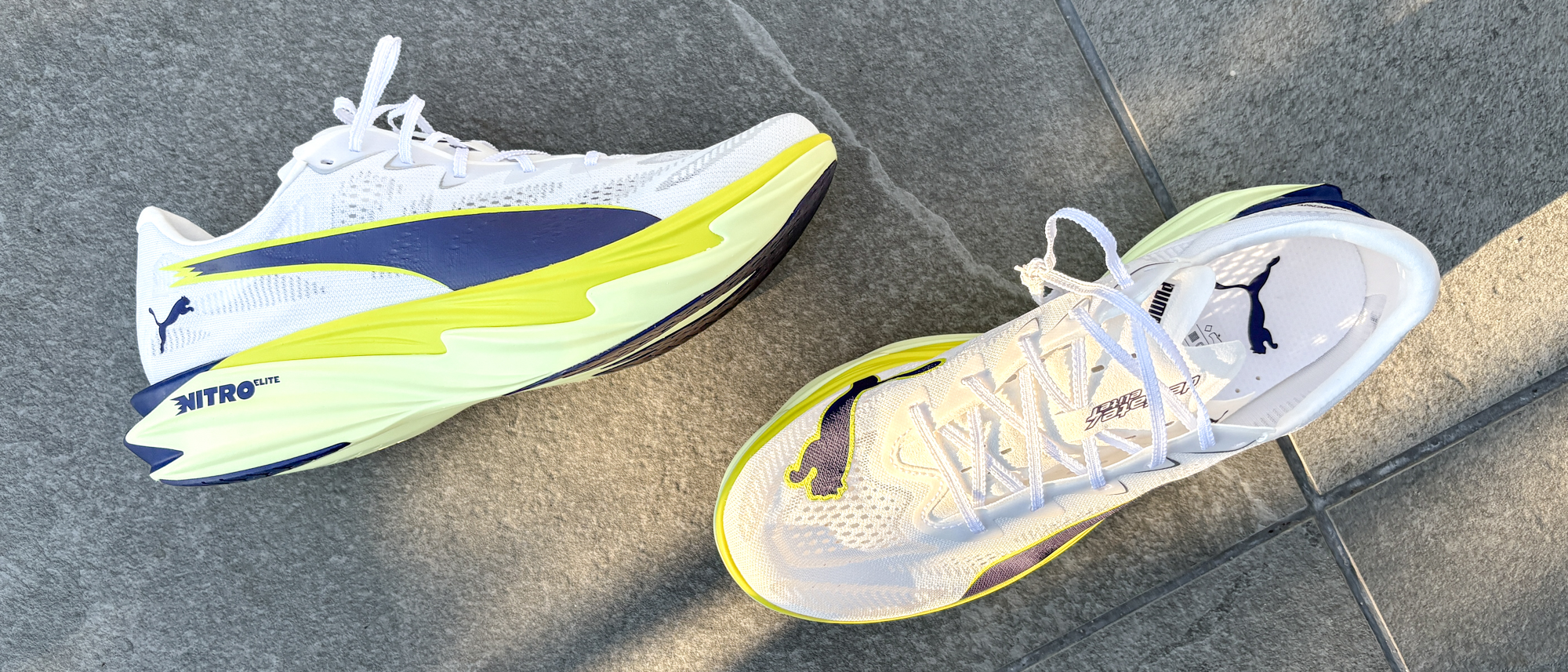6 Reasons I’m Buying the Galaxy S8 Over the Pixel and LG G6
The Galaxy S8 isn’t perfect, but it’s the best phone for this discerning reviewer right now. Here’s why.
Every day, the Tom's Guide team offers tons of advice on which products to buy, which ones to avoid and which ones to shoot on sight. What we talk about less often, though, are the devices we fork over our own hard-earned cash for. Since I’m about to upgrade my phone after two years, it’s time for me to put my money where my mouth is (and maybe help others decide on what to buy): So here's why I’m planning on picking up the new Samsung Galaxy S8, especially now that we've had the chance to fully review Samsung's latest smartphone.
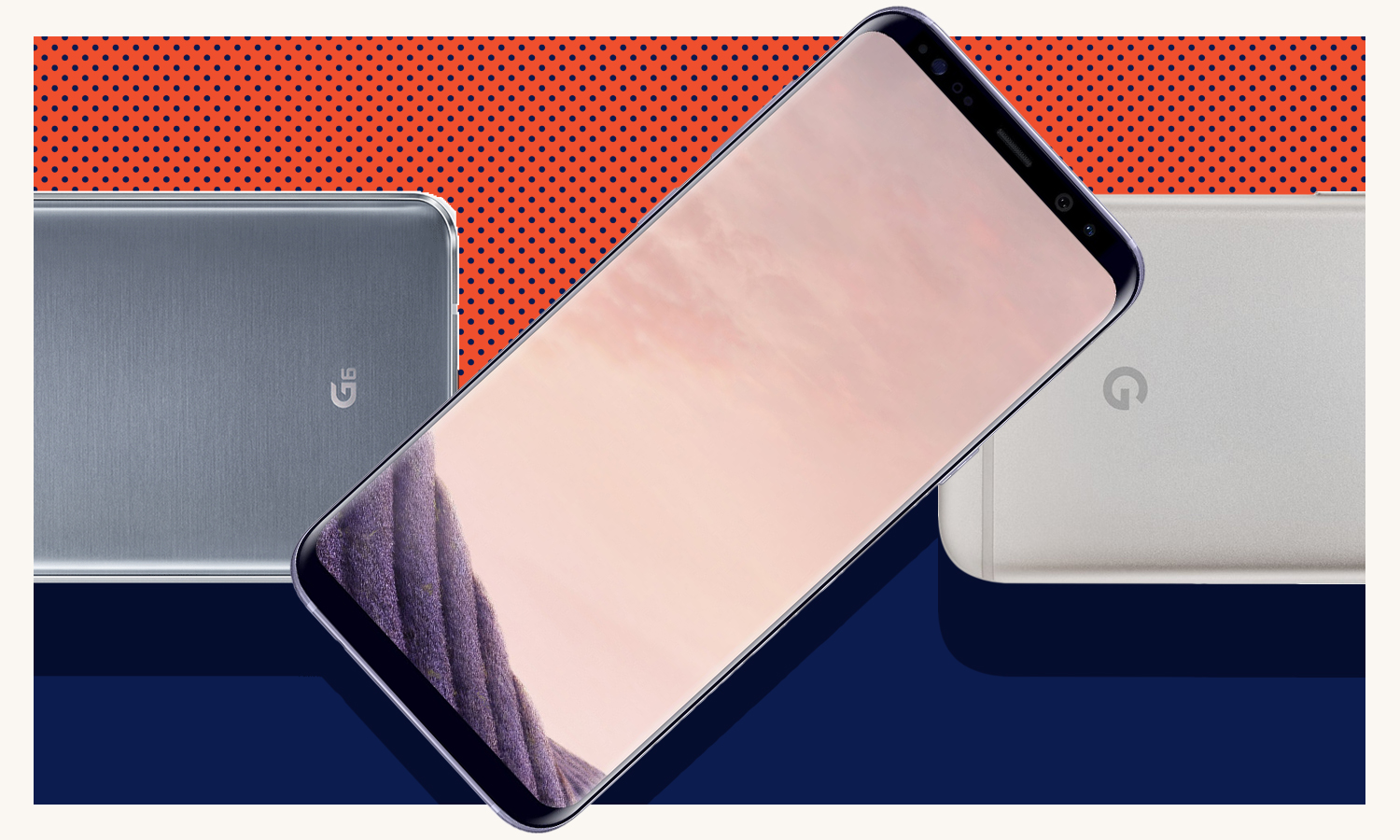
Back in April 2015, I finally upgraded to a Samsung Galaxy S6 Edge after using multiple iPhones and an HTC One. And over those two years, my S6 Edge has treated me well, surviving repeated abuse both from demanding workloads and a life spent outside of a protective case. However, there's still no cure for old age, and with my S6 Edge's deteriorating battery life, declining processor and outdated features (such as a micro USB port), I'm ready to move on.
The Contenders
Right now, there are a lot of worthy candidates if you’re in the market for a new phone. Like all Apple phones, the iPhone 7 Plus is exquisitely crafted, and its dual rear camera is a great tool for smartphone photographers. But after three years, the iPhone's design is looking a bit stale, and I still don't don't like how closed-off Apple's ecosystem is.
On the Android side of things, the Google Pixel is another enticing phone (I gave it a nearly perfect score after all). I love having immediate access to all the latest Android updates, and the photos you get from the camera's HDR modes are a marvel of Google's image-processing tech. But it's too damn ugly. Compared with a lot of phones, the Pixel feels bulky — that goes double for the larger Pixel XL — and the big glass panel in back around the camera and fingerprint sensor reek of a rushed design job.
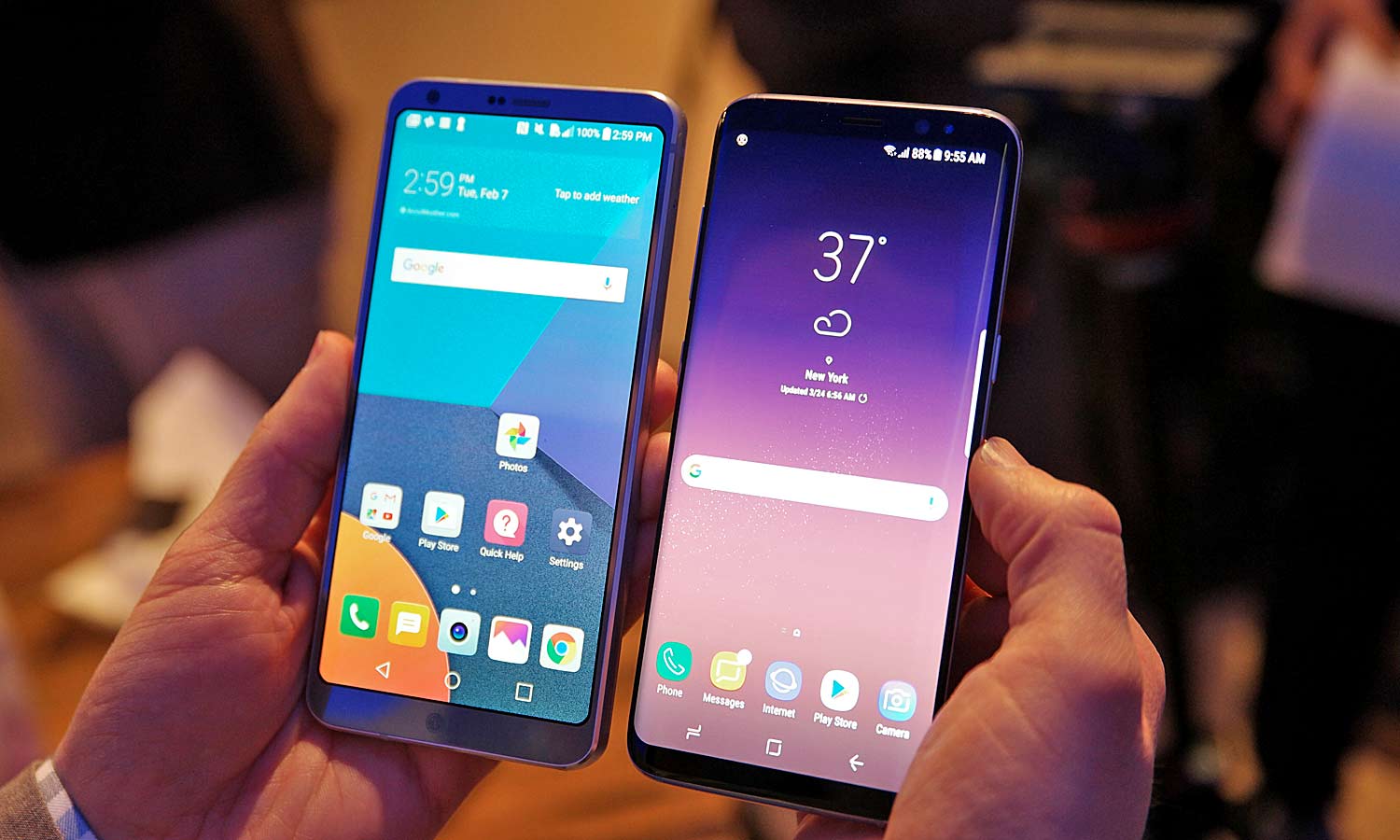
The LG G6 is also a worthy contender, but aside from the new phone’s 18:9 display, the S8 does almost everything the G6 can, but better. The one important exception is a dual-lens camera. So that brings us back to Samsung.
The Features That Bring It Home for the S8
The first thing that instantly grabs me about the S8 is how it looks. Samsung’s new phone is absolutely gorgeous: whether it's in your hand or on a table, the S8 doesn't have a bad angle.
Galaxy S8 and S8+ Specs
| Galaxy S8 | Galaxy S8+ | |
| Price | $720-$750 | $840-$850 |
| Display (pixels) | 5.8 inches (2960 x 1440) Super AMOLED | 6.2 inches (2960 x 1440) Super AMOLED |
| Aspect ratio | 18.5:9 | 18.5:9 |
| Pixels per inch | 570 ppi | 529 ppi |
| Camera (Back) | 12 MP/f 1.7 aperture | 12 MP/f 1.7 aperture |
| Pixel Size | 1.4 µm | 1.4 µm |
| Zoom | 8x digital | 8x digital |
| Camera (Front) | 8-MP/f 1.7 aperture | 8-MP/1.7 aperture |
| Pixel Size | 1.22µm | 1.22µm |
| Video recording | 4K video at 30 fps | 4K video at 30 fps |
| Slow motion video | 720p at 240 fps | 720p at 240 fps |
| Biometric Scanning | Facial recognition, iris scanner, fingerprint reader | Facial recognition, iris scanner, fingerprint reader |
| CPU | Snapdragon 835 | Snapdragon 835 |
| RAM | 4GB | 4GB |
| Storage | 64GB | 64GB |
| microSD | up to 256GB | up to 256GB |
| Battery | 3,000 mAh | 3,500 mAh |
| Battery Life (Hrs:Mins) | 10:39 | 11:04 |
| Size | 5.9 x 2.7 x 0.3 inches | 6.3 x 2.9 x 0.3 inches |
| Weight | 5.5 ounces | 6.1 ounces |
| Water and Dust Resistantce | IP68 | IP68 |
| Colors | Midnight Black, Orchid Gray, Arctic Silver | Midnight Black, Orchid Gray, Arctic Silver |
| Wi-Fi | 802.11 a/b/g/n/ac | 802.11 a/b/g/n/ac |
| Bluetooth | Bluetooth 5.0 | Bluetooth 5.0 |
| Android Version | 7.0 Nougat | 7.0 Nougat |
| Charging | USB Type-C | USB Type-C |
| Wireless Charging | WPC and PMA | WPC and PMA |
Then there's the S8's 5.8-inch 2960 x 1440 display (or 6.2-inch on the S8 Plus), which is the best in the business. After two years of owning a phone with an AMOLED screen with pure inky blacks, I would have a pretty hard time going back to an LCD. In fact, DisplayMate called the S8's screen is "the most innovative and high-performance smartphone display that we have ever lab tested."
Get instant access to breaking news, the hottest reviews, great deals and helpful tips.
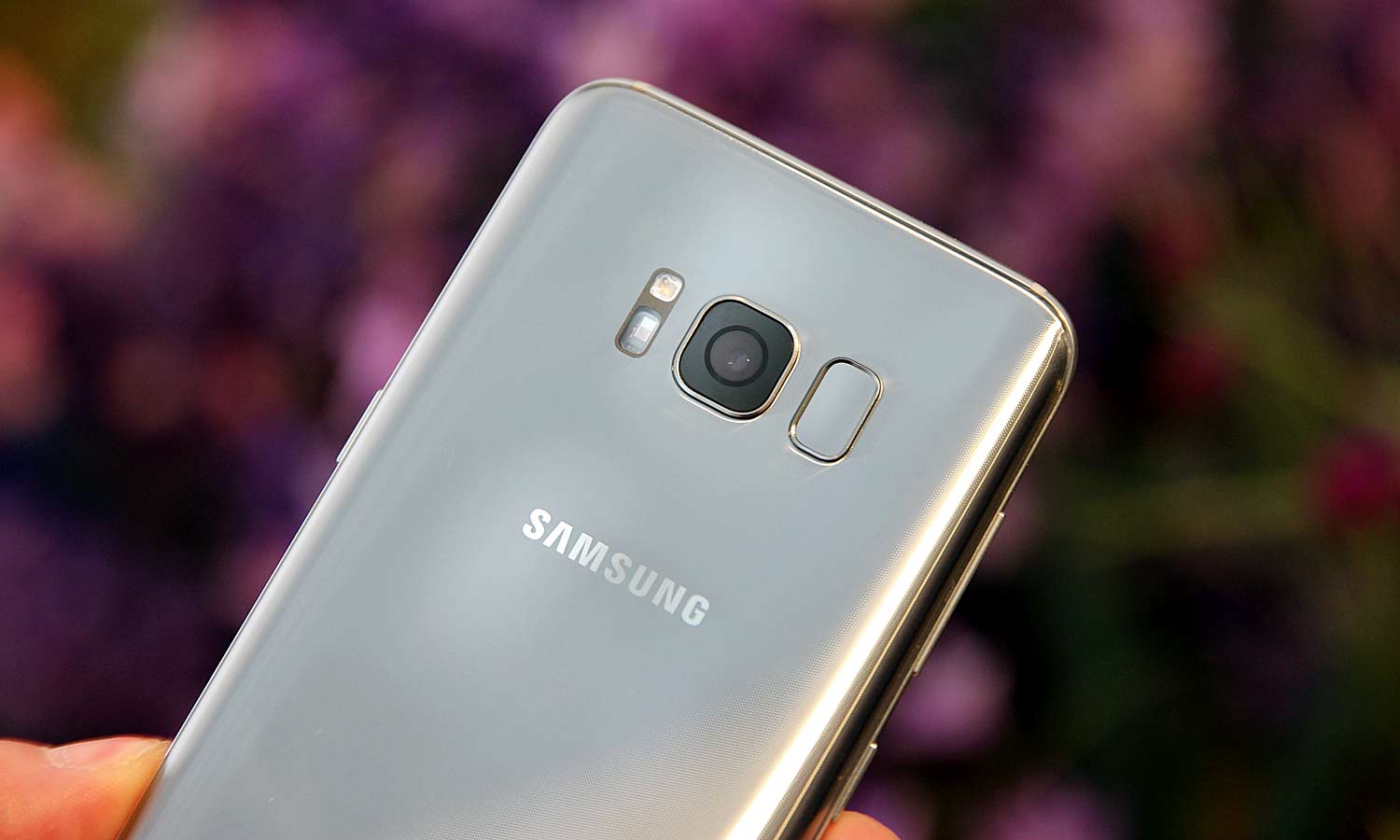
As for the S8's 12-megapixel rear camera, it may physically be the same as the one in the Galaxy S7, but Samsung has made some software enhancements that grant the S8 even better low-light and HDR-shooting capabilities. The new higher-res 8-MP front camera doesn't do much to excite me (mostly because I think selfies are the height of narcissism) but it's still a welcome addition.
The S8's Qualcomm Snapdragon 835 processor also gives it a speed advantage over every other Android phone, too, at least until other smartphone makers catch up. When we tested the S8, its multicore score on the Geekbench 4 test of general performance was 50 percent higher than its closest Android rival, and it beat the field in 3DMark's Ice Storm Unlimited test for measuring graphics performance. It's true the iPhone 7 Plus scored much better than the Galaxy S8 on Geekbench's single-core test but overall, the S8's performance in our lab impresses, and that will be reflected in real-world use, too.
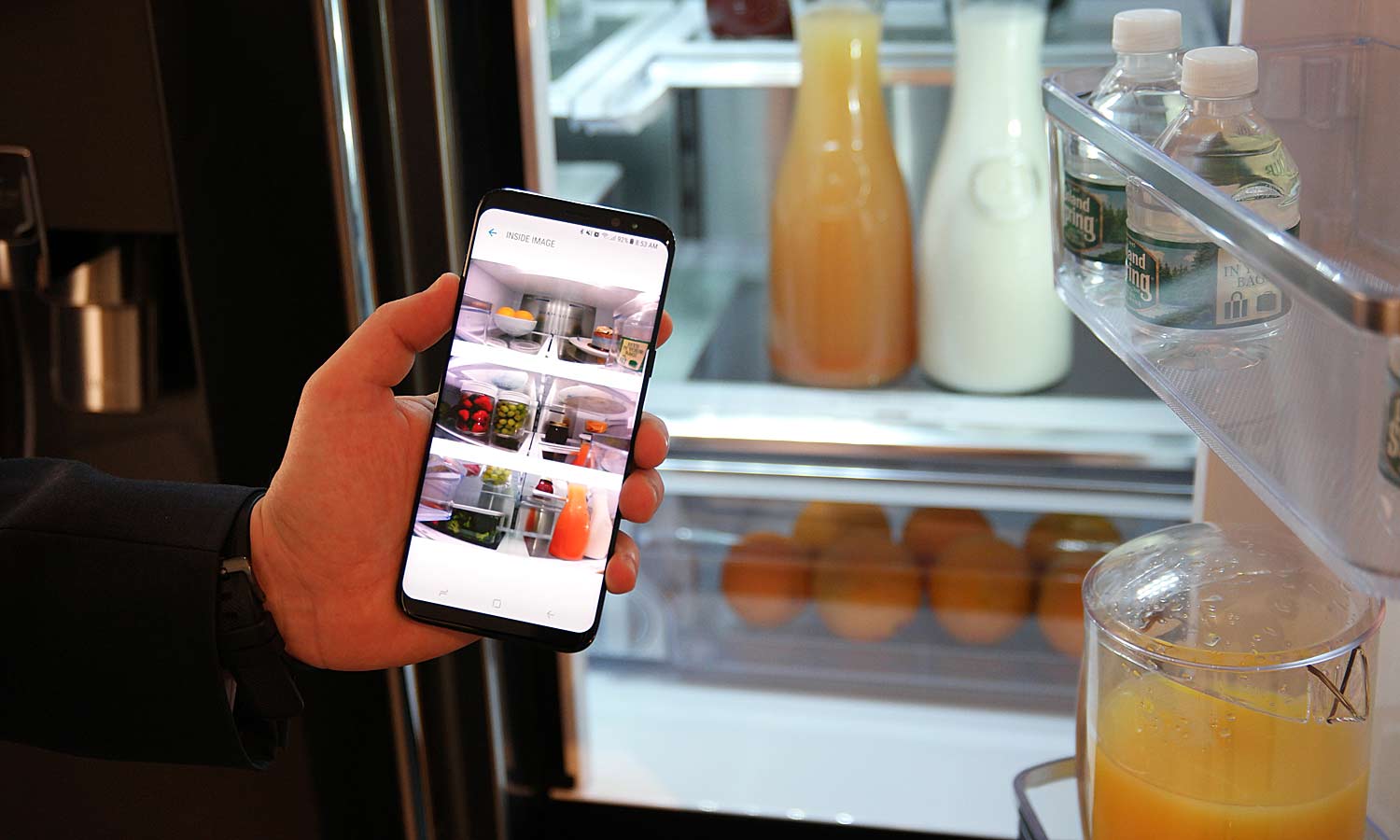
It's also really hard to ignore Samsung's ever-growing ecosystem, too. The new Gear VR controller lets Samsung's VR headset get much closer to that of fuller-featured VR devices. And, with the ability to work on even old-school mag stripe credit card readers, Samsung Pay remains the best and most widely usable mobile payment system. Add in the new and improved Gear 360 camera, the DeX desktop dock and the Samsung Connect Home system for controlling smart-home gear, and the S8's total package becomes even sweeter.
The X-Factor
Now we get to Bixby, which is sort of the the big unknown among the S8's new features. It mimics a lot of the functions you get with digital assistants like Siri, Alexa and the Google Assistant. But because Samsung knows it's not going to top Google when it comes to search, its new assistant takes things in a slightly different direction, with features like Bixby Vision and the ability to issue voice commands to control apps and even settings on your phone.
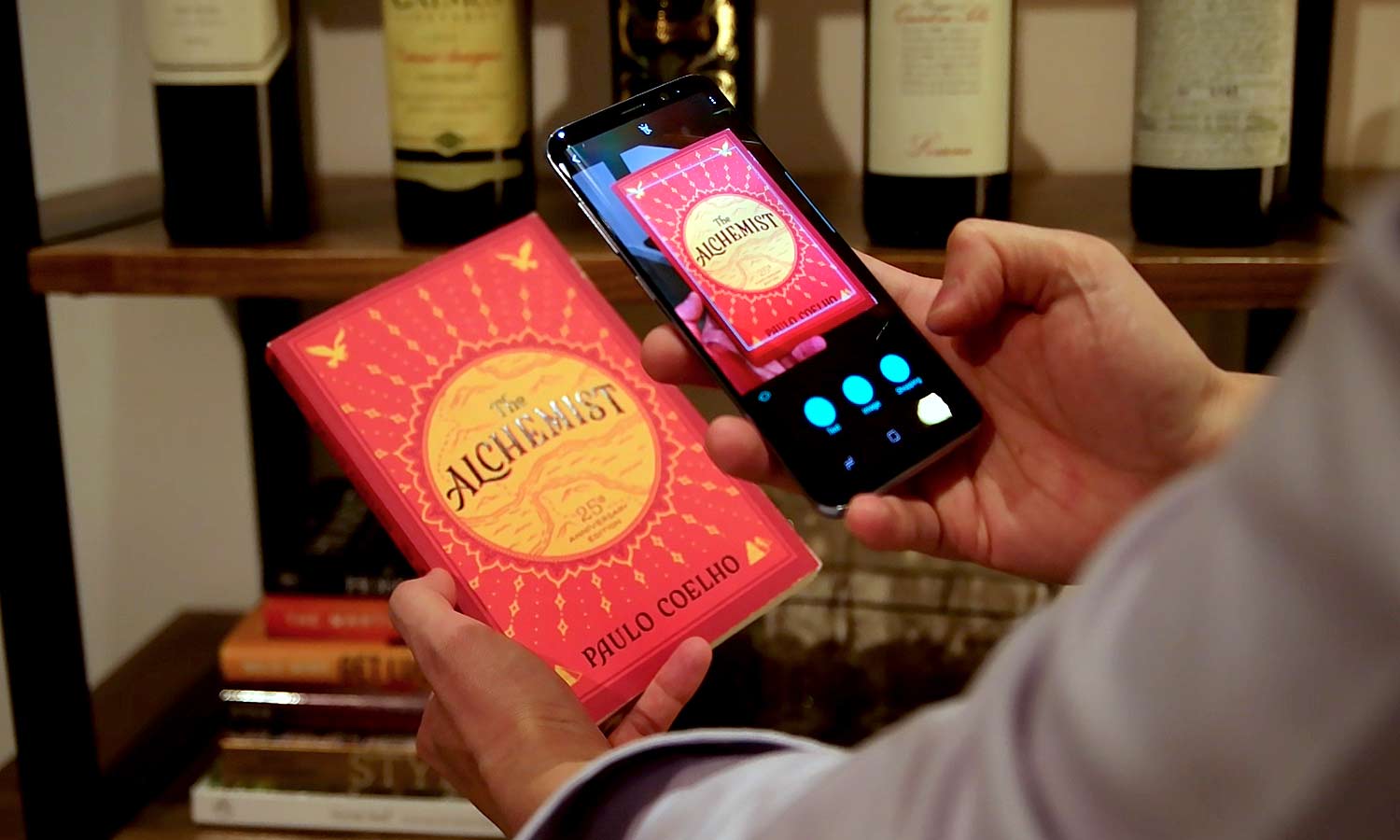
I think Bixby is going to be a boon for smartphone accessibility, a handy tool for lazy people like me, and it helps satisfy my desire to feel like we're getting closer to the sci-fi dreams I had as a kid. So even though Bixby Voice won't be available on the S8 right at launch — it's coming later this spring in a software update — I'm willing to step into the unknown to learn more about it. After all, my job is to take risks on products so you don't have to. And remember, this is all before Samsung has had a chance to incorporate the tools and tech it obtained when it acquired the Viv AI platform late last year. Samsung calls Bixby a "service that will evolve over time," and that's not just marketing spin.
Why I'm Not 100 Percent Happy
Even though I've made up my mind to get an S8, I still have a few concerns about the phone. The first is the S8's fingerprint location. Not only do I prefer my fingerprint sensors on the front of phones, the placement of the S8's reader means you could easily smudge its camera, which would result in soft, blurry photos. Some rumors claimed that Samsung was originally planning to build a sensor into the display itself, near where the S8's virtual home button is now, but it seems Samsung couldn't get that working for real. That’s definitely a shame.
Samsung's single rear cam is another disappointment. Dual cameras have been trending for quite a while now, and almost all of the S8's closest competitors have them, including the iPhone 7 Plus, the Huawei Mate 9 and P10 and the LG G6. It's not hard to see why: dual cameras let phones offer portrait modes with big camera bokeh effects, dedicated black-and-white modes or secondary wide-angle cameras for all your landscape shooting needs.
MORE: Samsung Galaxy S8 Features to Enable and Disable
I’m also concerned by the lag time for when it comes to getting updates for Android. My S6 Edge is still running Android 6.0.1 Marshmallow, instead of Nougat. And while part of the blame undoubtedly lies with my carrier, Samsung doesn’t get off scot-free, either. If I owned a Pixel, I’d be assured of the latest and greatest version of Android as soon as Google made it available.
I'm not convinced that, with their taller dimensions, the extra-wide 18:9 (or 18.5:9 in the case of the S8) aspect ratios displays are actually very one-hand friendly. But there's no denying that's where the industry is headed, so I'm going to dive in and live it.

The S8's single speaker is also pretty depressing for a premium phone. HTC and Apple have figured out how to deliver stereo audio on their flagship phones by combining output from the main downward speaker with help from the earpiece. But, apparently, that wasn't something Samsung wanted to do on its new Galaxy.
Finally, it's impossible to forget that starting at around $750, the S8 ain't cheap. Since I've waited two years to upgrade, though, the hit to my wallet won’t be as painful. And even though the S8's starting price is about $100 higher than the S6 or S7, that's still less than then the $915 I forked over for my 64GB S6 Edge two years ago.
Final Thoughts
No phone is perfect, but right now, the Galaxy S8 ticks more boxes for me than any other phone on the market. And even though it isn't officially available yet, I've been lucky to have already gotten enough hands-on time with the S8 to make me feel confident about my decision.
There's still room for improvement, and I'm eagerly awaiting whatever Google delivers as the Pixel 2, because a full year of development time could let Google improve upon the release of its first homegrown handset. But that phone’s probably not coming until the fall, and I need a new daily driver now. I'm looking forward to riding with the Galaxy S8.
Editors' Note: This article was originally posted April 12. We've updated it with a specs chart and additional information about Bixby.
Photo credit: Sam Rutherford/Tom's Guide. Illustration: Tom's Guide
Sam is a Senior Writer at Engadget and previously worked at Gizmodo as a Senior Reporter. Before that, he worked at Tom's Guide and Laptop Mag as a Staff Writer and Senior Product Review Analyst, overseeing benchmarks and testing for countless product reviews. He was also an archery instructor and a penguin trainer too (really).
-
Antoine_5 Enjoy it!Reply
Samsung Rushed Galaxy S8 Despite Design Flaw, Says Analyst
http://flip.it/-CKz3n -
Mbowen84 I ordered the s8 as well.. and there's no way.. Samsung had 14 months to come up with this beauty, there isn't anything on this phone that was rushed!Reply -
ajh34 After going from a Nexus to a G4 I will never buy another closed and locked phone from a vendor that will not stand behind their warranty obligations (LG) and will go with whomever allows unlocking and rooting so I have control of the hardware I own.Reply -
Oreo__Bernard No big deal here Antoine: http://flip.it/-CKz3nReply
This is old news and we all know it. Something which we can't overcome. Takes seconds for a person to adjust. Not a big deal to me. -
Dennis Furlan If you're going to write an article about "six reasons I'm buying the Galaxy S8..." then why not actually list those reasons?Reply -
911-Jason Totally agree with AJH34, I just checked XDA and there are still no custom ROMs for the AT&T version of the S7. Leaning towards waiting for the Pixel2 or the OnePlus5.Reply -
Decoder98 I am in the same boat as Sam. I bought a phone 3 yrs ago and it has served me well, but is just getting old. I would have liked to compare the pixel 2 with the S8, but I am not waiting until October. S8 wins the day on this decision. Also took into account some people I know that have the S7 and love it.Reply
 Club Benefits
Club Benefits





